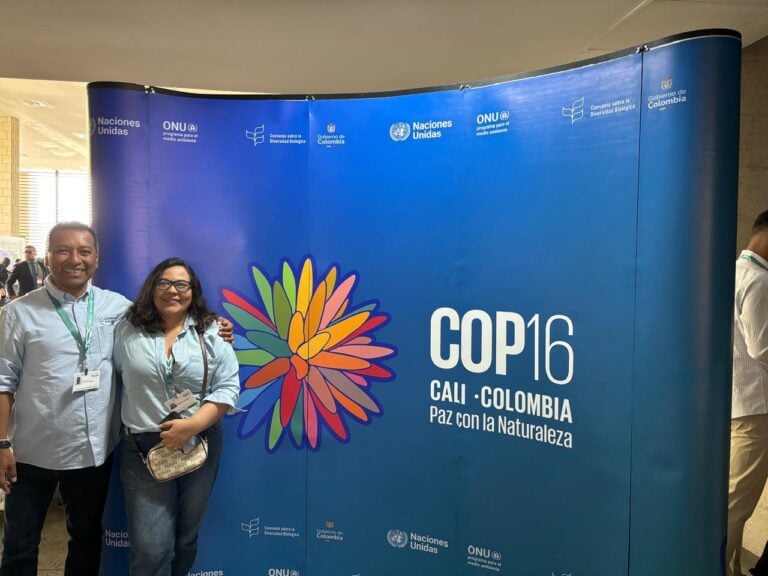Latin American Waterkeeper Groups Submit COP16 Declaration Calling on Leaders to Protect Water, Biodiversity Across Region
By: Waterkeeper Alliance

A new declaration (English, Spanish) submitted this week at the United Nations Biodiversity Conference of the Parties to the UN Convention on Biological Diversity (COP16) in Cali, Colombia, represents the unified voices of 20 Waterkeeper groups advocating for water and biodiversity across Latin America. Supported by Waterkeeper Alliance, this effort was led by Bocas de Ceniza Waterkeeper, Liliana Guerrero, who organized the participation of fellow Colombian Waterkeepers: Cartagena Waterkeeper, Río Cravo Sur Waterkeeper, Río Inírida Waterkeeper, Río Meta Riverkeeper, Río Pauto Waterkeeper as well as Río Ozama Waterkeeper from the Dominican Republic, Nicoya Peninsula Waterkeeper from Costa Rica, Brazil’s Guanabara Baykeeper, Chile’s Maule Itata Coastkeeper, Futaleufú Riverkeeper, Ecuador’s Guayllabamba Waterkeeper, and Lake Atitlán Waterkeeper from Guatemala. Peru’s Río Mapacho Waterkeeper and Ramis Riverkeeper, and Waterkeeper groups from Mexico—Cabo Pulmo Coast Waterkeeper, Los Cabos Coastkeeper, Tijuana Waterkeeper, San Quintín Bay Waterkeeper, and Loreto Coastkeeper—round out this impactful coalition.
Together, we are calling on Latin American leaders to prioritize water and biodiversity for the future of their communities and ecosystems.
Specifically, this declaration highlights the critical importance of the Kunming-Montreal Global Biodiversity Framework, which set 23 biodiversity goals for nations to meet by 2030, addressing everything from pollution control to the restoration of natural habitats. Target 7 of this framework, for example, focuses on reducing nutrient runoff, cutting pesticide and chemical risks by half, and eliminating plastic pollution—all essential for restoring healthy ecosystems in Latin America.
The groups are also calling for the principles of the Escazú Agreement—a groundbreaking Latin American treaty that safeguards environmental defenders and expands public access to environmental information—to be fully implemented. This agreement, which Latin American Waterkeeper groups successfully petitioned leaders to ratify, ensures that communities can participate in decisions affecting their natural surroundings, protecting both ecosystems and the advocates who support them. Lastly, while the COP16 declaration aligns with previous biodiversity conferences, it also aims to strengthen the commitments established under the Paris Agreement, emphasizing the need to protect Latin America’s water and biodiversity as the foundation for climate resilience across the region.
Through this united front, Latin American Waterkeeper groups, supported by Waterkeeper Alliance, are advocating for policies that protect water, foster biodiversity, and advance sustainable livelihoods for communities deeply connected to these ecosystems.